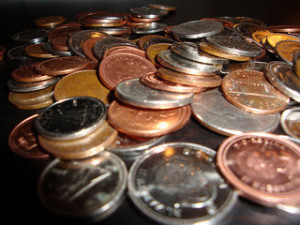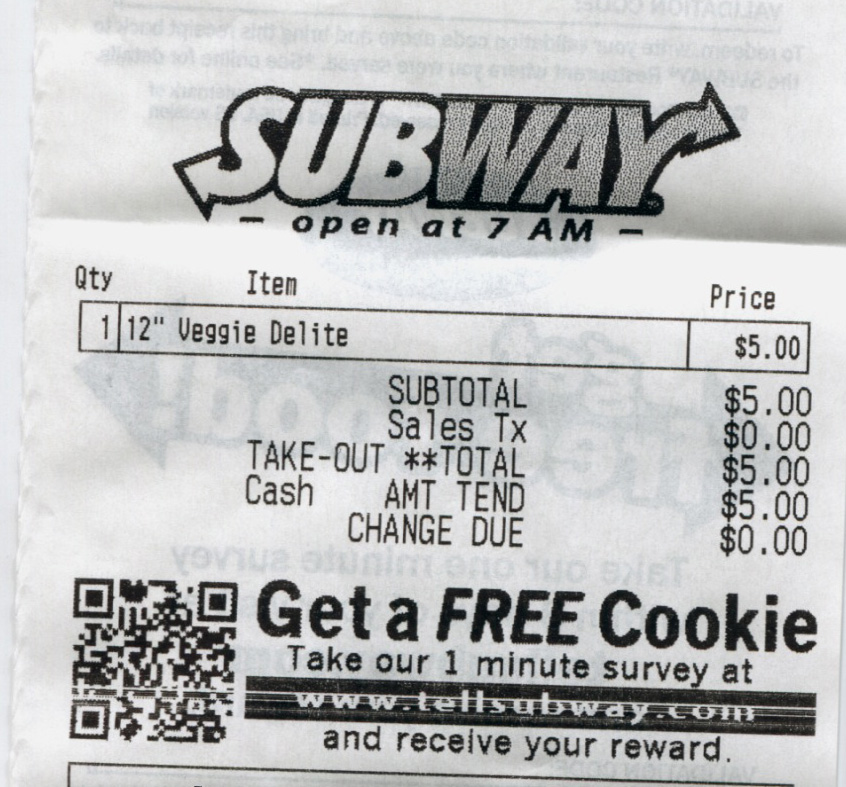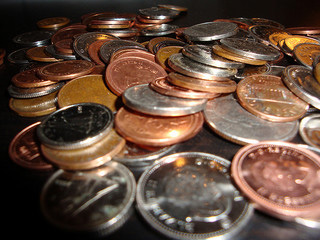Do I need to pay sales tax on food?
Business Guy, When I go to the grocery store, I don’t have to pay sales tax. Does that mean that I don’t need to charge my customers sales tax when I sell food? Why should I pay tax on food?

That’s a good question. This is becoming a big issue as the sales tax rate seems to be ever-increasing. It’s near 10% in many parts of California, and that’s a lot of money for price sensitive customers. Many of your customers will notice a lower meal cost if you don’t charge sales tax. And there is a basic issue of fairness involved.
Is it fair to tax food? The logic behind the law that charged sales tax on prepared foods was that restaurant food was not a strict necessity; and people had the option of making their own food at home. So food sold in a grocery store is not taxed; and food from a restaurant is taxed. But for many people work away from home and it’s not practical to go home and prepare a meal in 45 minutes, in many cases it’s cheaper to buy a meal off the value menu than it is to cook a similar meal; and some people don’t have a kitchen. So the sales tax on food seems regressive, we are charging low-income working people who work long hours (security guards, truckers …) and homeless people sales tax on their dinner while the executive who eats a meal prepared by his stay-at-home wife (or staff) pays no sales tax on his meal.
It’s basically our understanding that you need to get a Re-Sale permit and charge sales tax if you are selling food that’s ready to eat at or near the point of sale. You need to fill out from 400SPA and you can get your resale permit from the California Board of Equalization (BOE) office in Irvine. (See this page about getting started in business)
As with everything else in California, it’s not that simple There are a lot of exceptions.
- Exempt Prepared Meals For instance, according to BOE publication 22 the following prepared foods are exempt from sales tax: Student meals, Sales of meals by religious organizations, Meal and food sales by such institutions as hospitals, meal programs for low-income elderly persons, meals delivered to homebound elderly or disabled persons, meals and food products served to condominium residents age 62 or older, and sales to air carriers engaged in interstate or foreign commerce.
- Take Away Food Exemption There is also an exemption for food sold “to go” or “take away” under certain conditions. BOE’s Publication 22 states that if your business meets the 80/80 rule (80% of your sales are food and 80% of your sales are taxable), your customers don’t have to pay sales tax on some “to go” food. This only seems to apply to certain items: sales of cold products, separate sales of Hot bakery goods and hot beverages. According to Publication 22 Cold products include (Cold food products include cold sandwiches, milkshakes, fruit smoothies, ice cream, cold salads, cold bakery items, and so forth), and hot food exempt from sales tax includes “Examples of heating a food product above room temperature include; grilling a sandwich, dipping a sandwich in hot gravy, or using infrared lights, steam tables, or microwave ovens. Examples of hot prepared food products include hot sandwiches, pizza, barbecued chicken, soup, consommé, bouillon, steak, and so forth.”
From what we understand there are some Subways (see receipt below sent in by a reader) and other fast food places that have it programmed into their system to help out customers buying cold sandwiches “to go.” We are sure many small businesses just forgo these savings because of all the accounting work involved. Unless you have a computerized Point of Sale device, it would be nearly impossible to figure this out. And you want to check with your CPA to make sure you understand the rules and regulations — we certainly do not fully understand them and if you have read this far into this article you need the help of a tax professional. The days when you could DIY your own taxes are over. The BOE does give some interesting advice. If you are in a complicated situation, they suggest that you get written advice from them. “For your protection, it is best to get tax advice in writing. You may be relieved of tax, penalty, or interest charges that are due on a transaction if we determine that we gave you incorrect written advice regarding the transaction and that you reasonably relied on that advice in failing to pay the proper amount of tax. (Pub 22)” And they give you a place to write in your questions : www.boe.ca.gov/info/email.html
- Take away food not ready for consumption at your location (The frozen pizza exemption) According to Publication 22, “Sales of cold food products sold in a form that is not suitable for consumption on the premises and not eaten on the premises. A cold food product is not“suitable for consumption on the premises” if it requires further processing by the customer, or is sold in a size not ordinarily consumed by one person. For example, the sale of a frozen pizza is not taxable because it requires further processing by the customer. The sale of a quart of potato salad, a quart of ice cream, or a whole pie would not be taxable because those amounts would not ordinarily be consumed by one person when sold without eating utensils or dishes for consumption on the premises.

References:
Check out publication 22 http://www.boe.ca.gov/pdf/pub22.pdf
Getting started in business–Regulatory Compliance http://startup.ocbusinessstartup.com/wp/regulatory-compliance/
© 2012 OCSmallBusiness.com
Follow Up Question:
Dear Business Guy, we sell our home made goods to a local store. Do we need to pay/collect sales tax for the money we make from these sales?
Well we are not tax experts, but in general the answer in NO. According to the BoE’s Website, “Retail sales of tangible personal property in California are generally subject to sales tax tax applies to the the sale of goods for their final use. So the final use of your home made goods is when someone uses or eats them, not when they are put on the shelf at your local store.
In other countries, a Value Added Tax (VAT) is charged and you would pay tax on the amount of value you add to the products. But fortunately, we don’t have this tax (yet??).
But you will need to verify that the the people buying from you are legitimate retailers who will pay sales tax; and if your are selling your goods without verification your may have to pay the sales tax plus big penalties out of your pocket. A lot of businesses do this by making a copy of the retailer’s California Resale Permit. The state has a verification website here:
https://efile.boe.ca.gov/boewebservices/verification.jsp?action=SALES
and you can find out more about resale certificates here:
http://www.boe.ca.gov/lawguides/business/current/btlg/vol1/sutr/1668.html
An as you may also be selling your product to customers, you should get a re-sale certificate yourself so that your are set up to pay in sales tax. And as the definition of sales tax only on a good’s final use, you may be able to buy the supplies that go into your product without paying sales tax. That could save you around 10% of your supply costs. For instance, if you are making chocolate chip cookies, the chips you buy are not for their final use so you technically don’t have to pay sales tax on them. But you would have to pay sales tax on a new oven, because you are the final user of the oven. But you will need to show your supplier a resale certificate. You can call the BoE directly at 1-800-400-7115, or consult an accountant.
